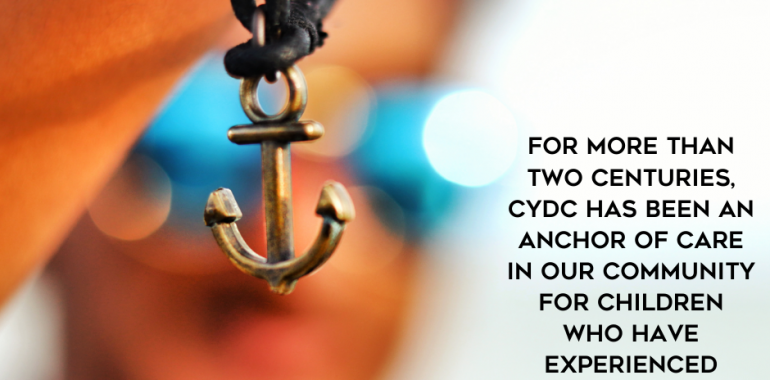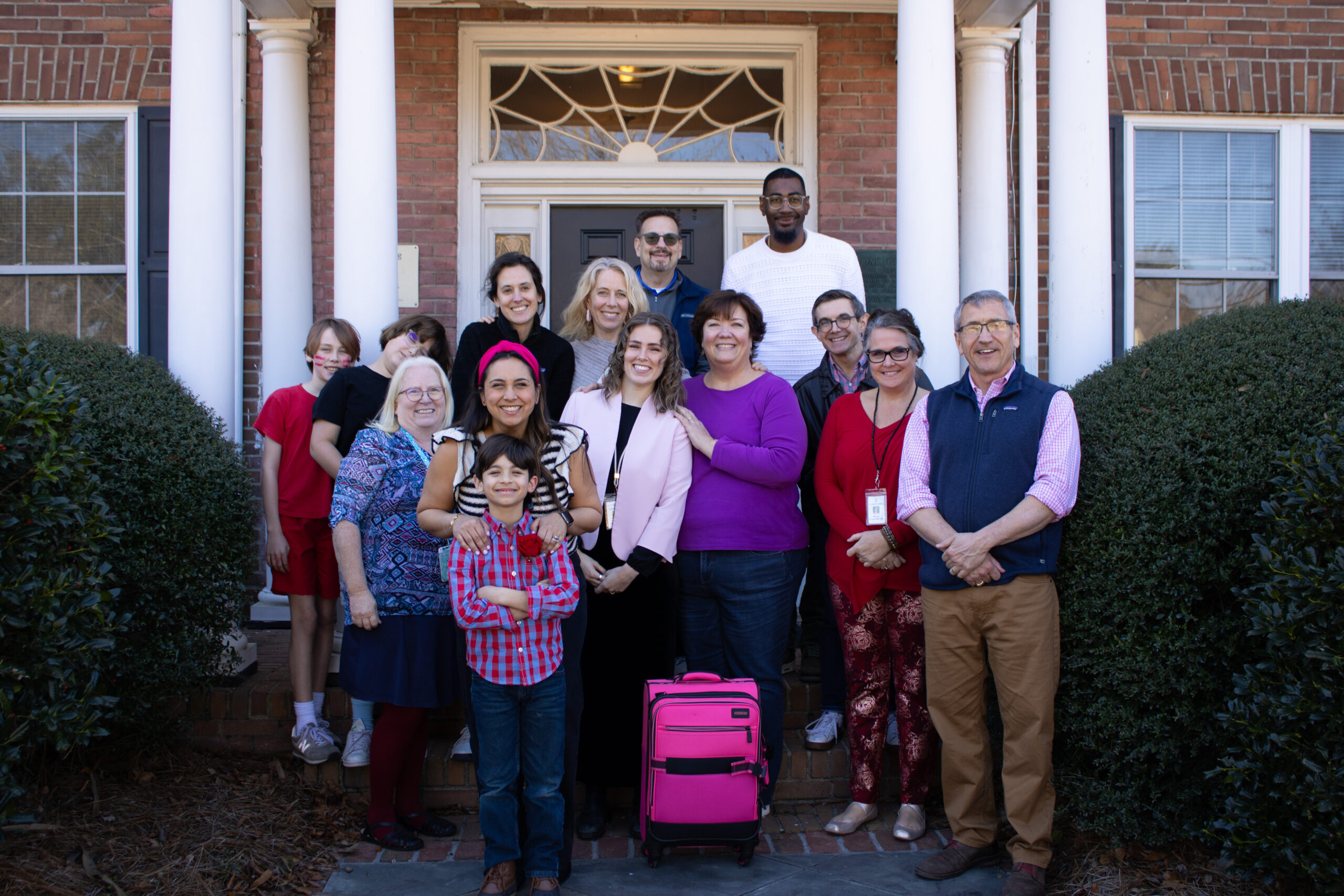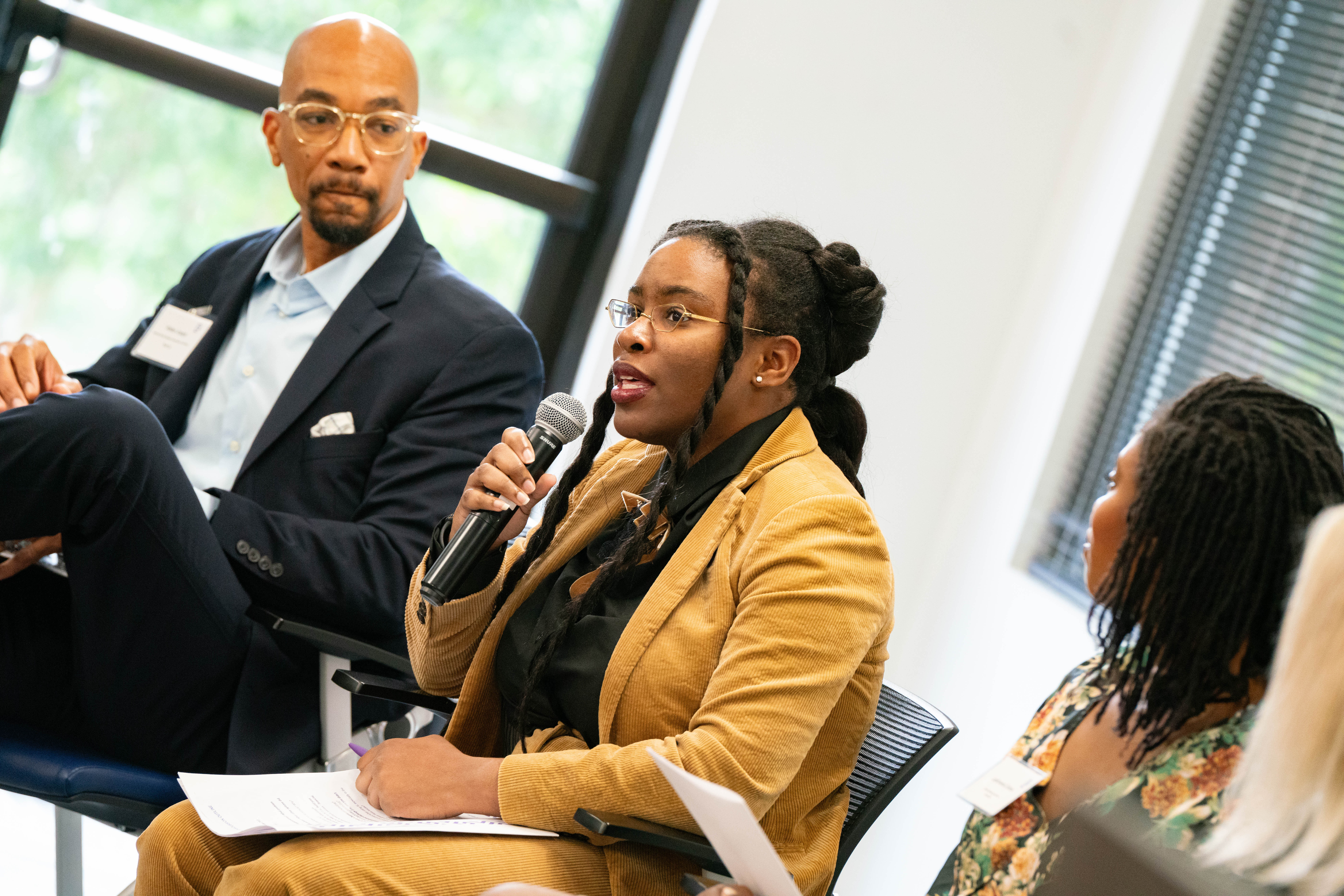NOTE: As of Feb. 29, 2024, Carolina Youth Development Center (CYDC) has rebranded to Landmarks for Families. Our nonprofit, community programs and residential services remain committed to cultivating thriving youth and families in this new chapter.
Foster care.
For many, those two words generate an immediate image. Maybe from personal experience or from what someone has seen on tv or in a movie. Sometimes the image appears to be a positive one – a fresh start at a new life – other times, an uncertain new chapter. Or maybe the term “foster care” conjures up a picture of a small child or teenager – constantly shuffled between new “homes” learning to navigate unfamiliar houses, a new school and new people. Or maybe it’s truly feeling safe and cared about for the first time in a young person’s life.
The reality is, foster care is all those things – and more. May is National Foster Care Month and a time to acknowledge the many people who provide safety and support for children and youth who have been removed from their biological parents homes for any number of reasons. This includes foster parents, extended family members, child welfare professionals, community volunteers, and various other community partners
That’s where our community comes in.
When foster children arrive at Carolina Youth Development Center (CYDC) they are in need of a safe, stable place to call home. CYDC has become that home for thousands of children and youth over its 230-plus year history. Going back more than two centuries, CYDC has been an anchor of care in our community, a long history of providing services and care for children who have experienced trauma.
Today, CYDC’s programs include three residential care facilities to provide temporary and/or long-term care for children and youth. Those programs, spread over two campuses, offer youth a safe and supportive environment that helps introduce normalcy and consistency in their daily lives and activities.
As professionals working in the child well-being community have learned more about trauma and brain development over the years, we have also learned more about what children who have experienced various levels of trauma and family disruption need to help them feel safe, sometimes for the first time in their young lives. While a place to sleep and healthy meals are important, they aren’t the only things necessary to create an environment where youth can thrive.
That’s why we use the Teaching-Families model in all of our residential programs. This evidence-based and trauma-informed best practice treatment approach prioritizes therapeutic relationships with caregivers as the primary method of effective treatment in supportive family-style settings. Trusted relationships and identifying and leading with personal strengths is the foundation to building lasting positive changes for children and youth in foster care.
We are seeing the results in how our youth respond to situations, like taking initiative to build their own healthy relationships and building a better understanding of the role of the adults in their lives. CYDC residential staff work alongside youth to help navigate homework, apply for jobs and celebrate major milestones – like receiving their driver’s license!
This month, CYDC, alongside our colleagues across the country will celebrate National Foster Care Month.
We hope that you all will consider sharing CYDC’s social media posts, sharing your story with your friends and family. Look out for posts as we share the impact each of you make every day to the youth in the foster care system. We also work to prevent hundreds more from entering the system through the work of our residential care team.
Ways to support CYDC throughout Foster Care Month:
- Share this blog with your friends and family!
- Follow us on social media.
- Support youth in foster care by supporting CYDC. To find a list of our most pressing needs visit: https://cydc.org/wishlist/
- Donate to help us expand the Residential Services program and services that care for children and families in the SC child welfare community.


